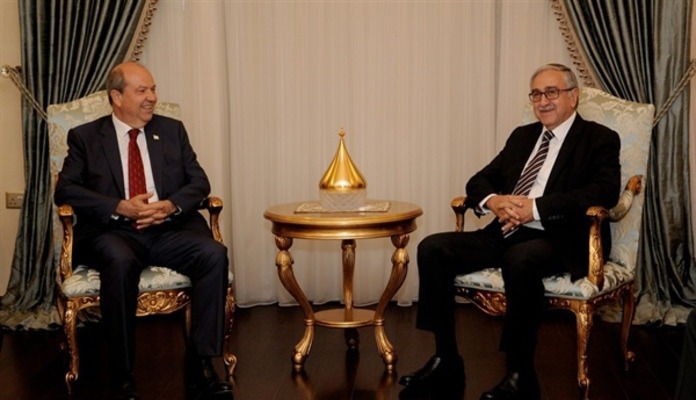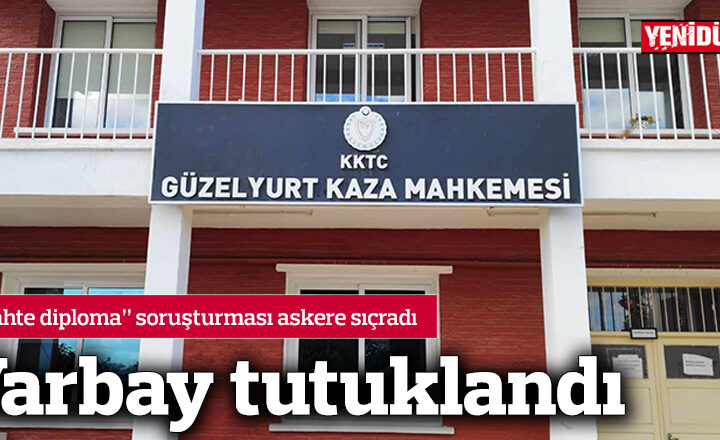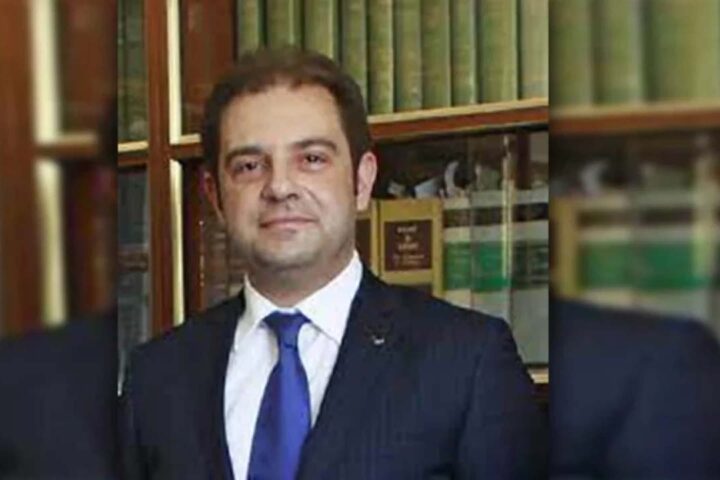Incumbent Mustafa Akinci and hard-line challenger Ersin Tatar will battle it out in a second round of the elections to choose the next leader of the Turkish Cypriot community, after the two garnered about 30% and 32%, respectively, in Sunday’s first round.
Apart from the presidency of the unrecognised ‘Turkish Republic of Northern Cyprus’, the election is also seen as a standoff between a pro-solution desire to the decades-old division of the island and direct rule by Ankara, with President Erdogan accused of meddling in favour of his chosen candidate, Tatar.
Turkish Cypriots cast their votes amid international outcry that the pro-Erdogan candidate opened the Varosha beachfront in the occupied north as a last-ditch effort to undermine the peace talks and reunification with the Greek Cypriots.
Voter turnout was estimated at 54% of the nearly 190,000 registered voters, challenged by a record 11 candidates.
Ersin Tatar was first past the post with 32.35% of the votes, followed closely by Mustafa Akinci at 29.84%, Tufan Erhurman 21.68%, Kudret Ozersai 5.74%, Erhan Arikli 5.36% and Serdar Denktash 4.20%.
Authorities in the Turkish occupied north opened part of fenced-off Varosha’s beachfront to visitors for the first time in 46 years on Thursday, in what incumbent Akinci called an election stunt.
He argued the opening of Varosha was planned to boost support for ruling coalition leader Tatar, head of the right-wing National Unity Party UBP.
The opening of Varosha was announced by Tatar and Turkey’s President Recep Tayyip Erdogan earlier in the week, after Tatar had visited Ankara, despite a ban on statements from candidates.
Coalition partner and former negotiator for the Turkish Cypriot side Kudret Ozersay said Tatar had essentially gone behind his back and announced the opening of Varosha without informing him or his People’s Party (HP).
Ozersay said his party was withdrawing from the ruling coalition, signalling its collapse, but he has yet to make good on his declaration.
In comments to the Financial Mirror earlier in the week, Dr Okan Dagli, member of the bicommunal Famagusta Initiative, said reopening Varosha under Turkish Cypriot control is not what a large part of the society in the north agree with.
“As members of the Famagusta Initiative we have been fighting for the opening of Varosha, but not this way… Varosha is not something that can be sacrificed in the name of politics or an election,” said Dagli.
He said that the initiative supports the reopening of Varosha under the control of the United Nations.
Dagli added: “The fate of Varosha should be decided jointly by the legitimate inhabitants of the town, Greek Cypriots and Turkish Cypriots who have lived here in the past”.
The north has opened up about 1.5 km of beachfront to the public, but not the 6 sq km fenced off area that includes abandoned hotels and residences which its population of some 40,000 people fled in 1974 during the Turkish invasion.
Varosha was the island’s premier holiday resort renowned for its thick golden sand.
Currently, about 200 metres of the coastline is accessible to the public in the shadows of bombed hotels and buildings, which were left to rot after 1974 as the Varosha resort was sealed off with barbed wire which extends into the sea.
UN Security Council resolution 550 considers any attempts to settle any part of Varosha by people other than its inhabitants as inadmissible and calls for the transfer of this area to UN administration.
Candidates’ position on the Cyprus Problem:
Mustafa Akinci represents the strive for a bizonal and bicommunal federal solution to the Cyprus problem, which breaks away from Ankara’s foreign policy.
Akinci is seen as a politician who has developed left-wing policies not always in line with Turkey.
He is known for his head-on confrontation with Turkish President Erdogan.
Akinci’s main challenge is from the right-wing leader Tatar and Tufan Erhurman of the left-wing CTP, also a supporter of a federal solution to the Cyprus problem.
Tatar’s UBP party is traditionally hardline when it comes to the Cyprus issue with much of the party openly supporting a two-state solution.









